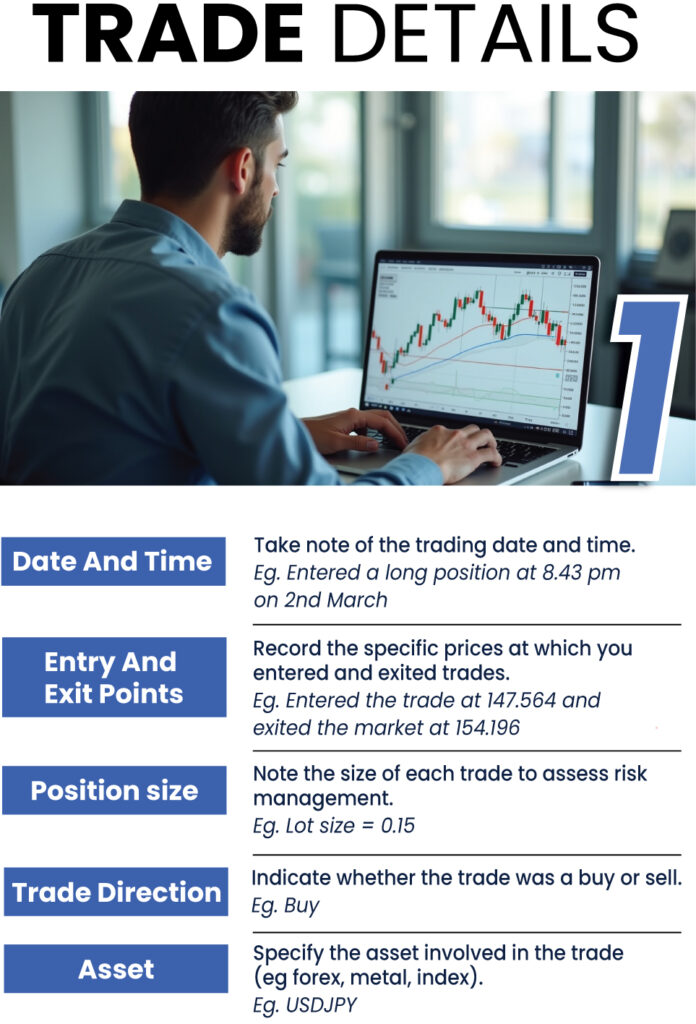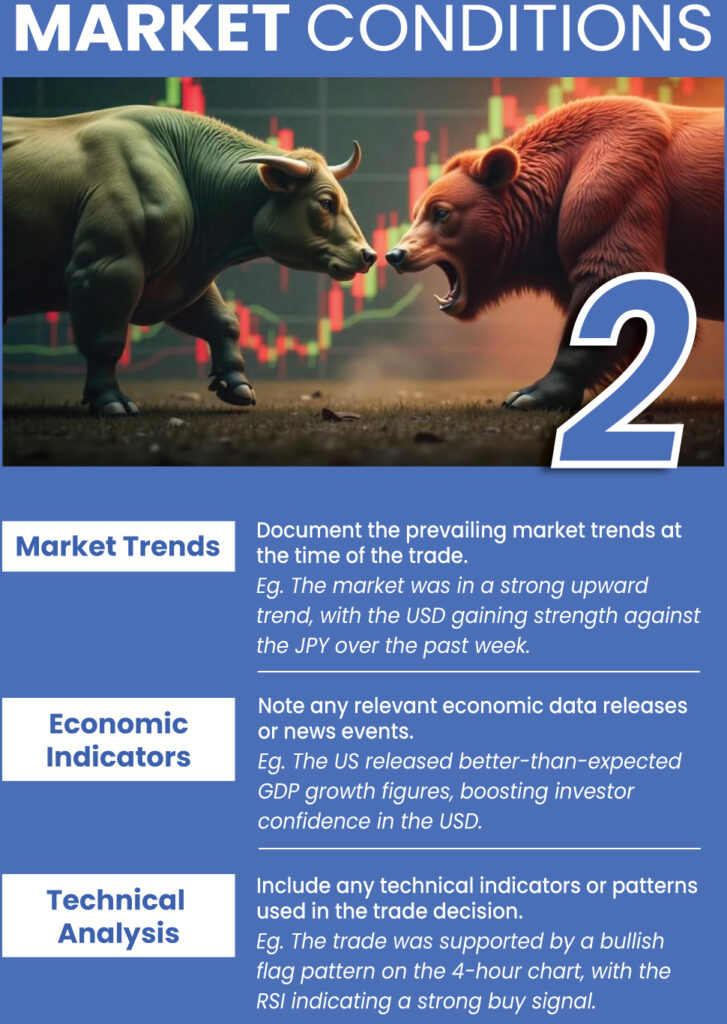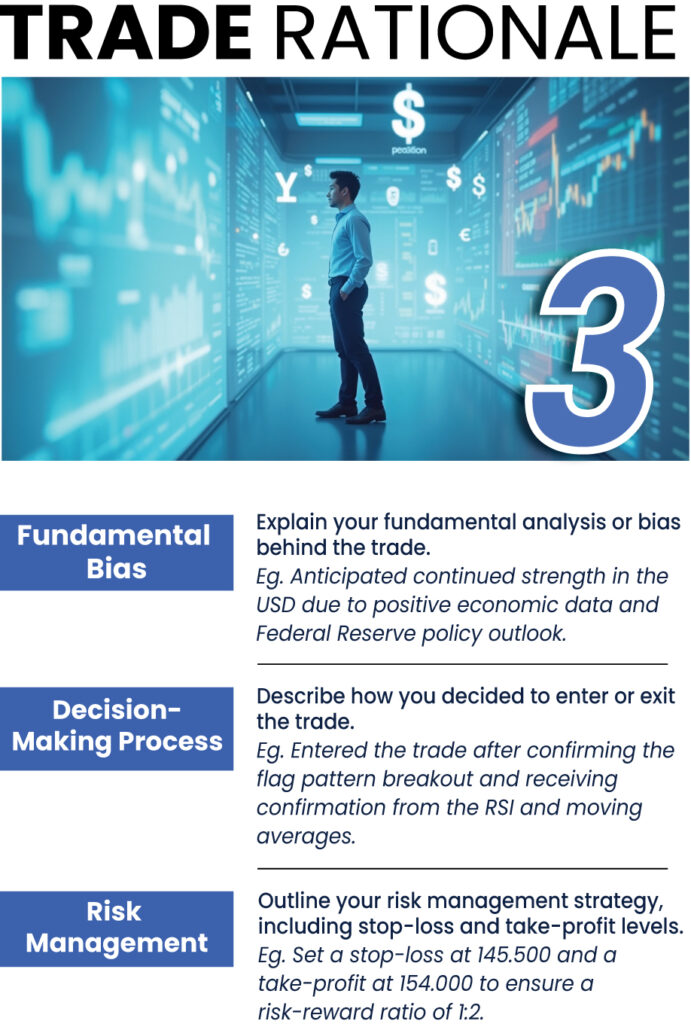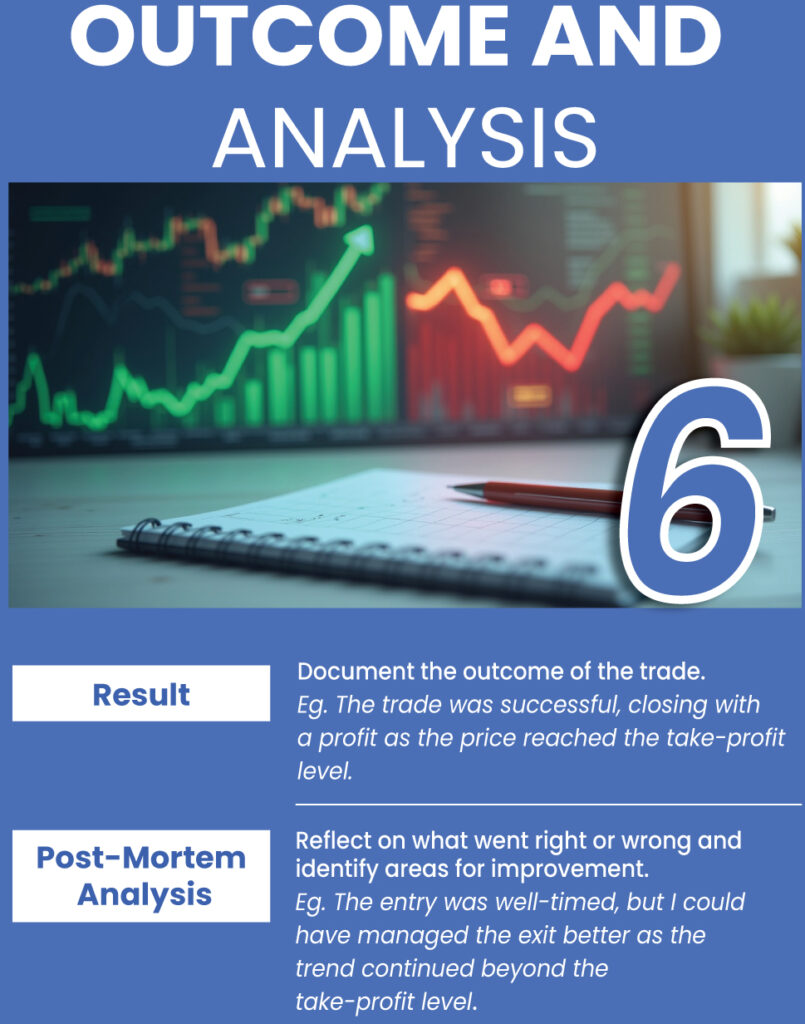Imagine this: You’ve just lost 20% of your portfolio in a week. Frustrated, you replay the trades in your head, but you can’t pinpoint where it all went wrong.
Was it the impulsive Bitcoin buy?
The USDJPY you held too long?
Without a clear record, you’re left guessing.
This scenario is all too common for traders who skip a critical tool – the trading journal. We’ll explore why maintaining a trading journal is helpful and essential for beginners aiming to turn chaos into consistency.
The Downsides Of Trading Without Keeping Track

Trading without a journal is akin to navigating a ship without a compass. You may set sail with a clear destination. However, without tracking your progress, it’s easy to drift off course and get caught in these impasses:
Emotional Decisions Dominate
New traders often chase losses or exit winning trades too early, driven by fear or greed. Without a journal, these emotional patterns go unchecked.

Progress Stagnates
How can you improve if you don’t know what’s working? Missing data means missed opportunities to refine strategies.
Repeat Mistakes
Forgetting past errors, like ignoring stop-losses, leads to costly mistakes.
Risk Management Falters
Overleveraging or poor position sizing becomes a habit without accountability.
In short, winging it costs money. A trading journal removes the guesswork.
What Is a Trading Journal?
A trading journal is more than just a record of your trades.
It’s a systematic log of every trade, decision, and outcome. It’s not just numbers. It captures the story behind quantitative (eg, prices, profit/loss, lot size) and qualitative (eg, emotions, market conditions) angles.

Think of it as a mirror reflecting your good and bad habits. Whether digital (apps, spreadsheets) or analogue (notebooks), they all turn raw experience into actionable wisdom.
What Are The Components Of An Ideal Trading Journal?






Five Reasons Why Recording Your Trades Is Favourable For You
1. Understand Your Strengths and Weaknesses
By consistently documenting your trades, you gain insights into your trading patterns. Identifying which strategies yield positive results and which don’t allows you to focus on your strengths and address your weaknesses.
2. Master Emotions
Trading is as much a psychological endeavour as it is a technical one. A journal helps you recognise emotional triggers that cloud your judgment, such as fear or greed.
By understanding these emotions, you can develop strategies to manage them, leading to more rational decision-making.
3. Improve Risk Management
A detailed journal can fine-tune your risk management. By analysing past trades, you can see if you’re consistently taking on too much risk or if your stop-loss levels are too tight or loose.
This awareness helps refine your risk management practices, safeguarding your capital.
4. Support Setting Up Incremental Goals
A trading journal acts as a roadmap for your trading journey. By setting and tracking incremental goals, you maintain focus and motivation.

Whether improving your win rate or reducing the average loss per trade, a journal helps you set realistic targets and measure progress.
5. Avoid Future Mistakes
History tends to repeat itself, especially in trading. Documenting your trades allows you to learn from past mistakes, ensuring you don’t fall into the same traps again. This proactive approach can save you from costly errors in the future.
Wrapping It Up
A trading journal isn’t just a record. It’s your roadmap to mastery.
For beginners, it bridges the gap between reckless gambling and strategic investing. By documenting every decision, you gain clarity, control, and a competitive edge.
Ready to transform your trading? Start your journal today. Your future self will thank you.
Trade with VT Markets by signing up for an account or logging in to your account.







